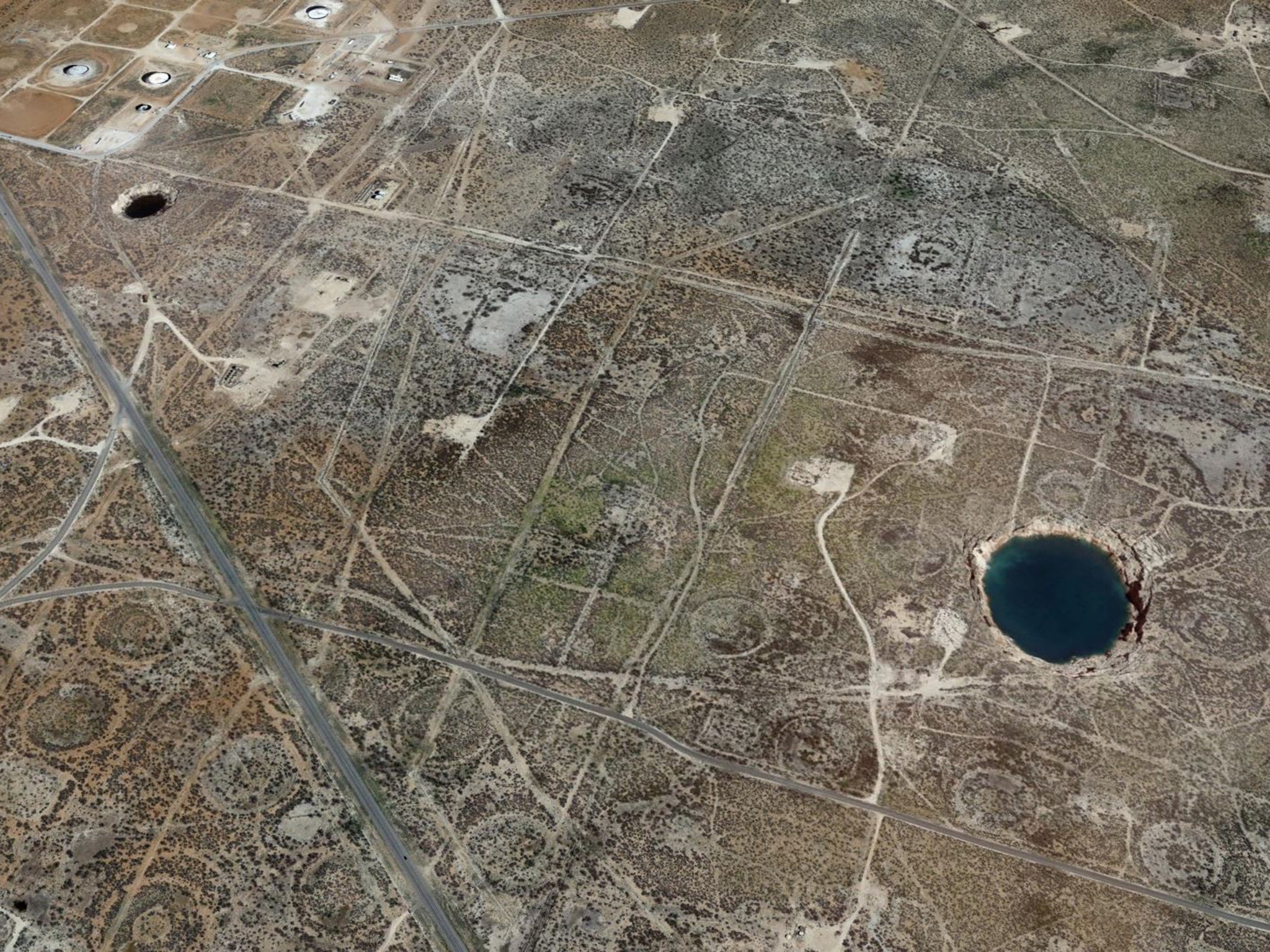Oil and gas drilling blamed for sinkholes threatening to swallow parts of Texas
'The ground movement we’re seeing is not normal,' say scientists

Your support helps us to tell the story
From reproductive rights to climate change to Big Tech, The Independent is on the ground when the story is developing. Whether it's investigating the financials of Elon Musk's pro-Trump PAC or producing our latest documentary, 'The A Word', which shines a light on the American women fighting for reproductive rights, we know how important it is to parse out the facts from the messaging.
At such a critical moment in US history, we need reporters on the ground. Your donation allows us to keep sending journalists to speak to both sides of the story.
The Independent is trusted by Americans across the entire political spectrum. And unlike many other quality news outlets, we choose not to lock Americans out of our reporting and analysis with paywalls. We believe quality journalism should be available to everyone, paid for by those who can afford it.
Your support makes all the difference.Oil and gas extraction in west Texas is causing the formation of massive sinkholes, according to a new study.
As the fossil fuel industry has expanded its operations in the region, an increase in seismic activity and other “alarming” geological hazards have been recorded.
Two giant sinkholes near the Texan town of Wink have previously been linked with such operations, but they may just be the tip of the iceberg.
The geophysicists who first alerted the world to the threat posed by the expansion of Wink’s sinkholes undertook further research and found unusual land movement throughout the wider west Texas region.
“The ground movement we’re seeing is not normal,” said Professor Zhong Lu, an expert in satellite radar imagery analysis at Southern Methodist University.
“The ground doesn’t typically do this without some cause.”
Having previously used satellite radar images to study the Wink sinkholes, Professor Lu and his collaborator, Dr Jin-Woo Kim, used similar methods to explore the link between such phenomena and human activities.
“This region of Texas has been punctured like a pin cushion with oil wells and injection wells since the 1940s and our findings associate that activity with ground movement,” said Dr Kim.
In their study, published in the journal Scientific Reports, the researchers demonstrated significant ground movement across a 4000-square-mile area of Texas.
Combining their imagery with oil well data for the region allowed the scientists to conclude that this unstable ground was associated with decades of fossil fuel extraction.
Oil and gas extraction techniques such as fracking – in which pressurised water is injected into underground rock formations – are known to be associated with geological hazards.
Fracking operations have been linked with seismic activity from Canada to the UK. Water injection increases pressure in the rocks, and the release of this stress results in ground movement.
Ground movement resulting from a combination of these extraction techniques and unstable rock formations in west Texas can lead to sinkhole formation and earthquakes.
“These hazards represent a danger to residents, roads, railroads, levees, dams, and oil and gas pipelines, as well as potential pollution of ground water,” Professor Lu said.
“Proactive, continuous detailed monitoring from space is critical to secure the safety of people and property.”
Though their study was restricted to a specific region, the scientists think this phenomenon is taking place across Texas.
“We’re fairly certain that when we look further, and we are, that we’ll find there’s ground movement even beyond that,” Dr Kim said.
Join our commenting forum
Join thought-provoking conversations, follow other Independent readers and see their replies
Comments